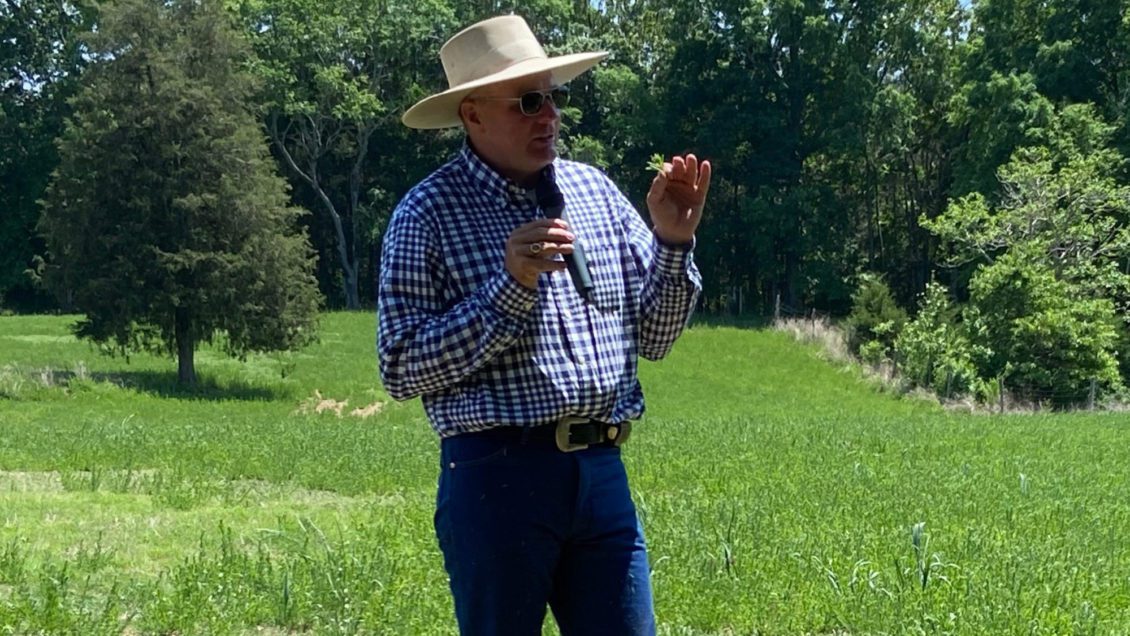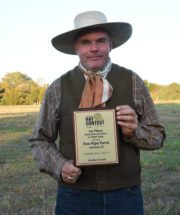
Reed Edwards of FoxPipe Farms in Laurens County, South Carolina has been making hay since 2007 and is a winner in this year’s Southeastern Hay Contest.
This was the 18th year for the Southeastern Hay Contest, which is part of the Sunbelt Ag Expo held in Moultrie, Georgia. Liliane Silva, a Clemson Extension forages specialist stationed at the Edisto Research and Education Center in Blackville, South Carolina, represents Clemson on the contest planning committee. She said this contest is a great way for growers to get recognition for growing good-quality hay.
“The goal of this contest is to demonstrate the potential to produce quality hay and baleage in the southeastern United States,” Silva said. “I encourage all South Carolina forage and bale producers to enter this contest to show off the quality of their hay.”

Photo by Becky Mills
Edwards’ entry was a mixture of alfalfa/novel endophyte tall fescue grown in his pastures. On his fields, Edwards grows a forage developed at Auburn University – AU Grazer sericea lespedeza, alfalfa mixed with bermudagrass and tall fescue and other warm- and cool-season forage mixtures. His horse pastures also have novel endophyte fescue to help prevent fescue toxicosis.
“I try to have something green and growing year around in my fields,” Edwards said. “I grow a mixture of warm season and cool season grasses – bermuda and fescue. The problem with fescue is we have toxic tall fescue that is toxic to livestock that eat it.”
The Southeastern Hay Contest accepts entries all year through September 1. This contest allows producers to compare the quality of their hay to that of other producers for a chance to win cash prizes. Completed entry forms must be submitted by a local Clemson Extension livestock and forages agent. Hay and baleage producers in the Southeast can submit samples in one of the following categories: warm season perennial grass hay, alfalfa hay, perennial peanut hay, cool season perennial grass hay, mixed annual grass or other hay, grass baleage, or legume baleage.
Entries must be submitted by the farm where the forage was grown. For information, contact Silva at lseveri@clemson.edu.
Information about the contest is available at https://site.caes.uga.edu/sehaycontest/.
-END-
Get in touch and we will connect you with the author or another expert.
Or email us at news@clemson.edu
